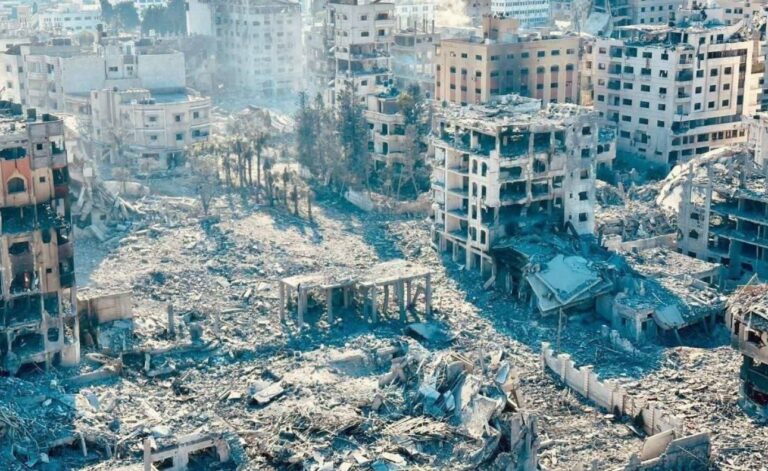With the current escalation of the war in the Holy Land between Israel and Hamas, crucial questions about the presence of nuclear weapons in the Middle East are surfacing. The balance of power in the region has always been precarious, and concerns about atomic weapons are legitimate.
The Middle East area is already plagued by conflicts in Syria and Yemen, and the recent outbreak of conflict between Israel and Hamas is likely to add a new dimension of uncertainty.
Against this backdrop, there is a need to examine more closely the position of Israel, Iran, and Hamas in relation to nuclear weapons, with consequences that could have a global impact.
Table of Contents
Israel and nuclear weapons
Israel is notoriously secretive about its nuclear weapons. The Israeli government has never officially confirmed the presence of nuclear warheads in its arsenals, but neither has it denied it.
However, some recent statements have shed light on the subject. Former Israeli Prime Minister Ehud Barak implicitly confirmed the existence of nuclear weapons in Israel, sparking debates about the country’s transparency.
Direct access to accurate data on the number of Israeli nuclear weapons remains a challenge, but some estimates suggest there may be as many as 90.
These weapons are ready to launch on U.S.-made ballistic missiles and fighter bombers. Such nuclear weapons are a matter of concern considering the geopolitical complexity of the Middle East.
Iran and nuclear ambitions
Iran is another key player in the region when it comes to nuclear weapons. The 2015 Iran nuclear deal placed limits on Iran’s nuclear program in exchange for the lifting of international sanctions. However, the United States withdrew from the deal in 2018 and Iran resumed its uranium enrichment program.
According to the International Atomic Energy Agency (IAEA), Iran has exceeded the authorized limit of enriched uranium set in the 2015 agreement by 18 times.
Although Tehran insists that its nuclear program is for peaceful purposes, this escalation has increased international concerns about Iran’s nuclear ambitions.
Hamas and the lack of nuclear weapons
Unlike Israel and Iran, Hamas, the Palestinian militant group operating in the Gaza Strip, does not have access to nuclear weapons. Hamas does not have the technology or resources to develop atomic weapons.
However, the recent firing of thousands of rockets at Israel by Hamas has raised concerns about the origin of these weapons and their potential impact.
This has led to speculation about Iran’s possible involvement in providing technical or material support to Hamas, which has been the subject of investigation and analysis by international authorities.
While definitive evidence has been elusive, the issue remains open and raises further questions about the spread of nuclear technologies in the Middle East region.
The main current concerns
The current escalation of the conflict between Israel and Hamas has raised fears of further destabilization of the Middle East. The region is already plagued by conflicts in Syria and Yemen, and the expansion of the conflict could lead to devastating consequences.
It is critical for the international community to continue to monitor the situation and seek diplomatic solutions to avoid a nuclear catastrophe.
In such an unstable area of the world, responsible management of nuclear weapons and atomic arsenals is crucial for peace, keeping the situation stable, avoiding escalation, and global security.
Read also: Israel-Hamas, fears for the outbreak of a Third World War: the possible scenarios












